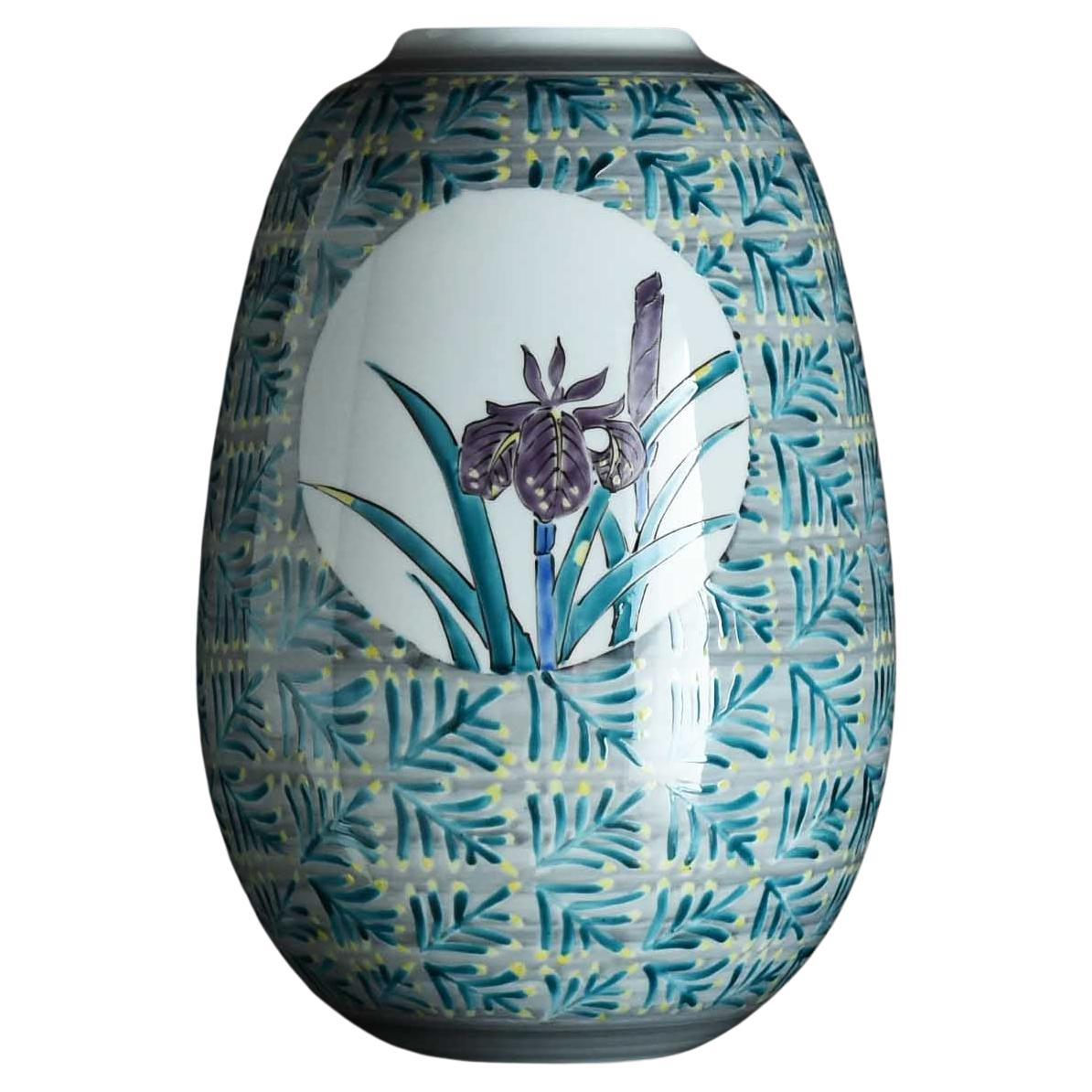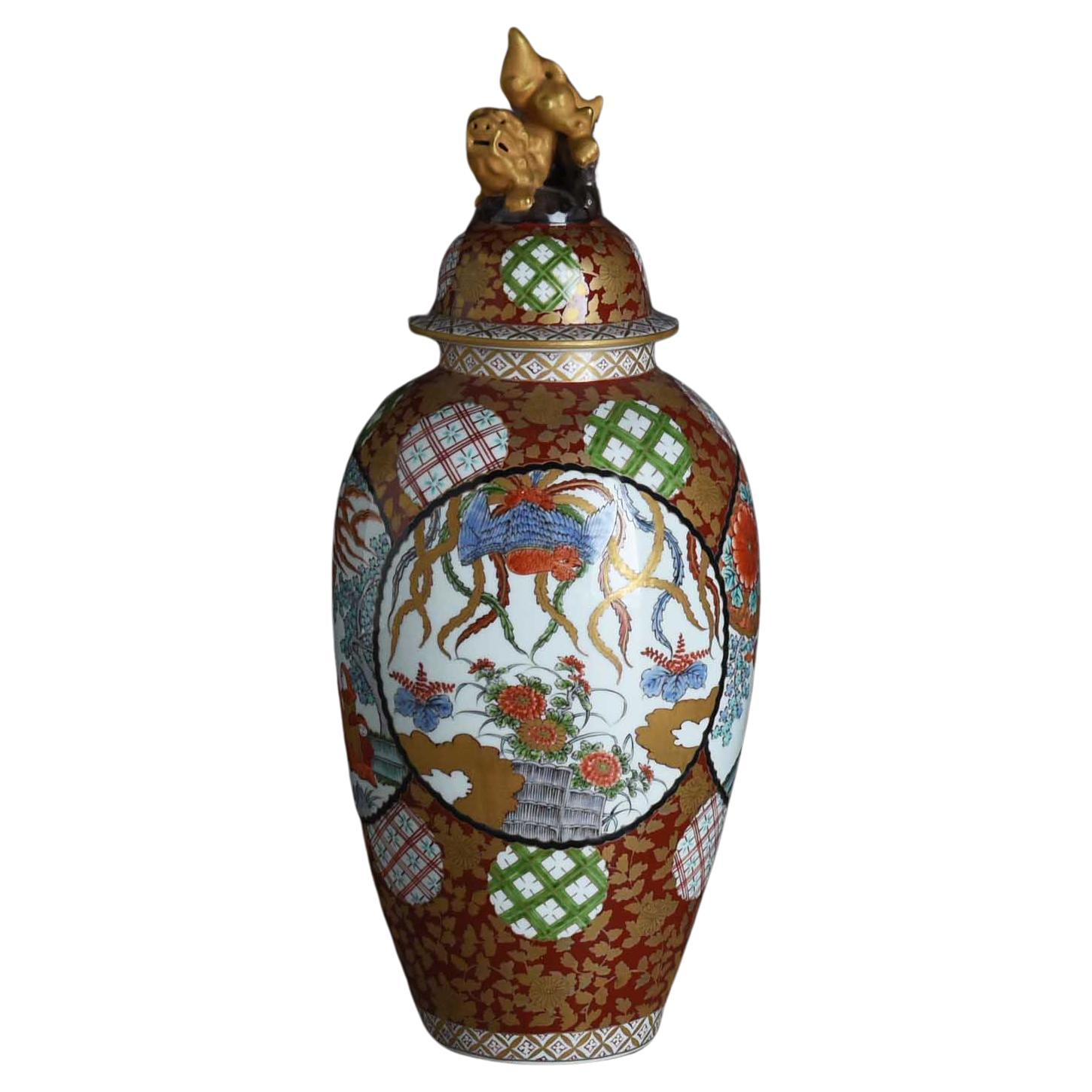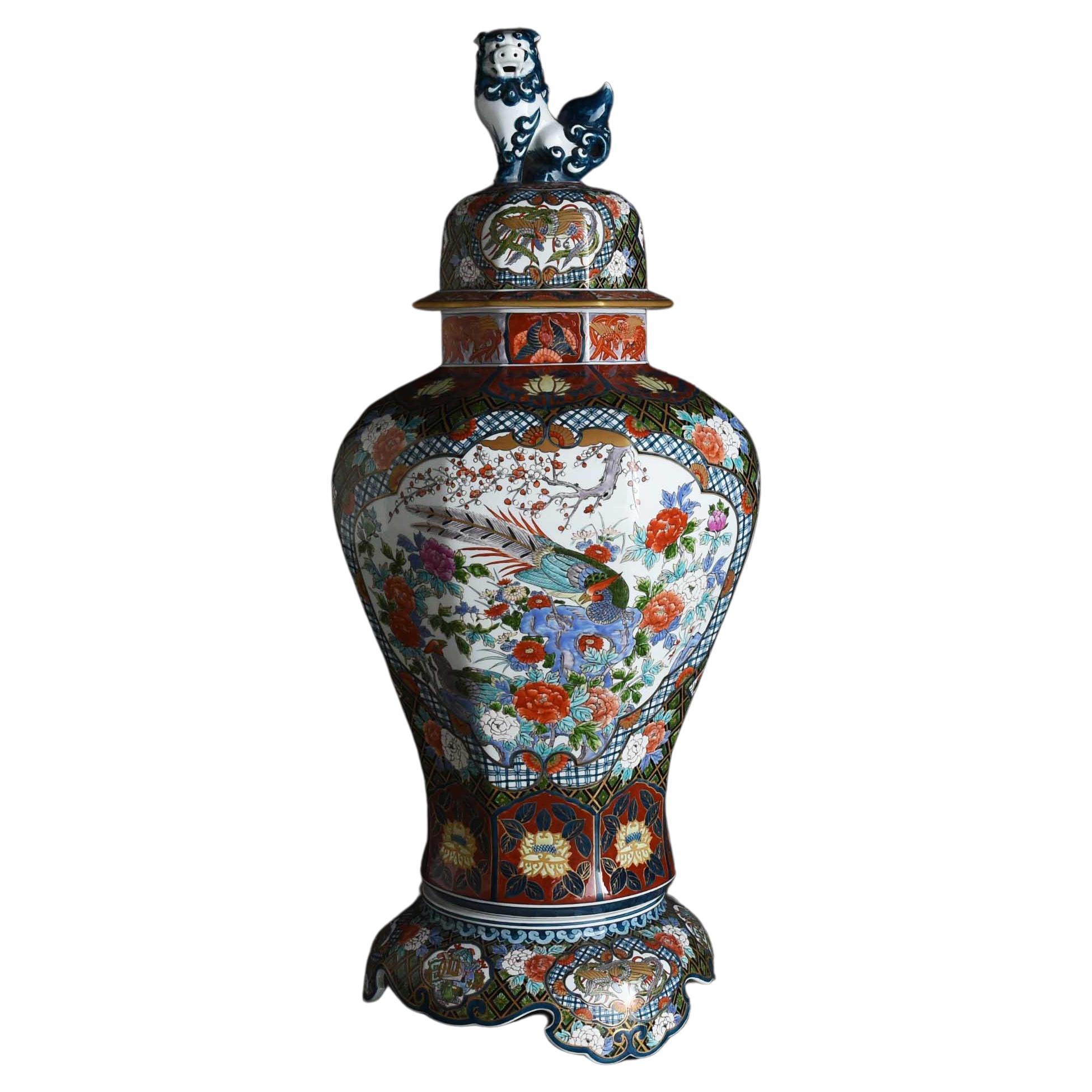Items Similar to Japanese Arita "Koimari Kinkai" Ornamental vase
Want more images or videos?
Request additional images or videos from the seller
1 of 8
Japanese Arita "Koimari Kinkai" Ornamental vase
About the Item
Hand-painted. The lavish use of gold depicts a luxurious and splendid expression. "Ko-Imari" refers to the old Imari ware produced during the Edo period, and Imari ware is a general term for ceramics produced in the Hizen province centered around Arita (Arita-cho, Saga prefecture) which includes current Saga and Nagasaki prefectures.
- Similar to:Arita (Artist)
- Dimensions:Height: 45.28 in (115 cm)Diameter: 16.54 in (42 cm)
- Style:Japonisme (In the Style Of)
- Materials and Techniques:
- Place of Origin:
- Period:
- Date of Manufacture:1950-1960s
- Condition:
- Seller Location:Shibuya City, JP
- Reference Number:1stDibs: LU9752239831212
About the Seller
New to 1stDibs
Joined in the past six months.
No Reviews Yet
Vetted Seller
These experienced sellers undergo a comprehensive evaluation by our team of in-house experts.
1stDibs seller since 2024
- ShippingRetrieving quote...Ships From: Shibuya City, Japan
- Return PolicyA return for this item may be initiated within 14 days of delivery.
More From This SellerView All
- Japanese Arita "Kinsai Kikubotan" ornamental vaseBy AritaLocated in Shibuya City, JPHand-drawn. Peonies are known as the "king of flowers" and symbolize nobility and luxury. In China, they are also called "wealthy herb", "family deity", and "flower king", and have b...Category
Mid-20th Century Japanese Japonisme Porcelain
MaterialsCeramic, Porcelain
- Japanese Arita "Iroe Shoubumon" ornamental vase LBy AritaLocated in Shibuya City, JPThis is a hand-drawn piece featuring the iris, which is said to embody strength, courtesy (especially in martial arts), and the meaning of victory, as it is pronounced "Shoubu" in Ja...Category
Mid-20th Century Japanese Japonisme Porcelain
MaterialsCeramic, Porcelain
- Japanese Arita "Kinrante Houou" Handmade ornamental vaseBy AritaLocated in Shibuya City, JPHand-drawn. The phoenix is a symbol of peace and happiness, and is considered auspicious. Kinran-de is a technique that originated during the prosperous Genroku period of the Edo er...Category
Mid-20th Century Japanese Japonisme Porcelain
MaterialsCeramic, Porcelain
- Japanese Arita "Somenishiki Madori Houou2 ornamental vaseBy AritaLocated in Shibuya City, JPHand-painted. The phoenix is considered a symbol of peace, happiness, and good luck. Somenishiki refers to the process of painting directly onto the unglazed clay body, and then appl...Category
Mid-20th Century Japanese Japonisme Porcelain
MaterialsCeramic, Porcelain
- Japanese Arita "Somenishiki Madori Houou" ornamental vaseBy AritaLocated in Shibuya City, JPHand-drawn. The lion on the lid has the meaning of warding off evil and bringing happiness. "Sometsuke" refers to a type of pottery where designs are painted directly onto unglazed p...Category
Early 20th Century Japanese Japonisme Porcelain
MaterialsCeramic, Porcelain
- Japanese Arita "Somenishiki madorikachou" large ornamental vaseBy AritaLocated in Shibuya City, JPHand-drawn. This is the largest decorative vase in Japan. The technique used to draw within the frame is called "Madori," which involves changing the design by the direction it faces...Category
Mid-20th Century Japanese Japonisme Porcelain
MaterialsCeramic, Porcelain
You May Also Like
- Massive Arita Blue & White Charger - Hand Painted/Gilded - Japan - 20th CenturyBy AritaLocated in Chatham, ONVintage Arita blue and white charger - hand painted - gilt details - massive size - three kiln stilt marks to the base - unsigned - Japan - mid 20th century...Category
Early 20th Century Japanese Anglo-Japanese Ceramics
MaterialsPorcelain
- Japanese Arita Porcelain Tray 'Pliage'By Denis Guidone, Hands On DesignLocated in Milan, ITThis tray is designed by Denis Guidone and handmade in Japan by Risogama for Hands on Design, a traditional pottery. It reminds the Japanese tradition of Origami, the designer uses the white Arita porcelain...Category
2010s Japanese Centerpieces
MaterialsPorcelain
- Unusual Antique 1690-1720 Japanese Imari Mustard Pots Arita Edo JapanLocated in Amsterdam, Noord HollandGratefull to share these two small mustard pots with you. Ca 1690-1720. Miniature mustard pot of baluster shape moulded as an opening lotus flower, on a ribbed conical stem. Curve...Category
Antique 17th Century Japanese Edo Ceramics
MaterialsPorcelain
- Imari porcelain gourd shape, Arita, Japan, Meiji Period.By Imari PorcelainLocated in Gargrave, North YorkshireImari porcelain gourd shaped dish, Arita, Japan, c. 1890, Meiji Period. The unusual gourd shaped dish, hand painted in typical Imari colours, with panels of birds flying amongst plan...Category
Antique 1880s Japanese Meiji Porcelain
MaterialsPorcelain
- Massive Antique Japanese Arita Porcelain Emperor MeijiBy AritaLocated in Hillringsberg, SEThis very large plate made in Japan during the Emperor Meiji time 1868-1912. Wonderful blue pattern on fine porcelain. There is a crack that’s shown thro...Category
Antique 19th Century Japanese Japonisme Ceramics
MaterialsCeramic
- Japanese Arita, Amsterdams Bont, Tripod Salt Cellars, 1690-1730Located in Delft, NLJapanese Arita, Amsterdams Bont, tripod salt cellars, 1690-1730 European decoration on Japanese porcelain. "Arita" porcelain made in Japan, during ...Category
Antique 17th Century Japanese Antiquities
MaterialsPorcelain
Recently Viewed
View AllMore Ways To Browse
Japanese Porcelain Vase Gold
Vintage Japanese Porcelain Vases
Mid Century Japanese Porcelain
Japaneses Arita Imari Porcelain
Vintage Japanese Porcelain
Japanese Old Imari
Japanese Vintage Porcelain
Japanese Arita Vase
Japanese Arita Porcelains
Japanese Imari Porcelain Vase
1950 Hand Painted Porcelain
Japanese Arita
Arita Vase
Imari Ware
Imari Ware Japan
Arita Imari
Japanese Porcelain Vases 20th Century
Imari Ware Japan Vase





